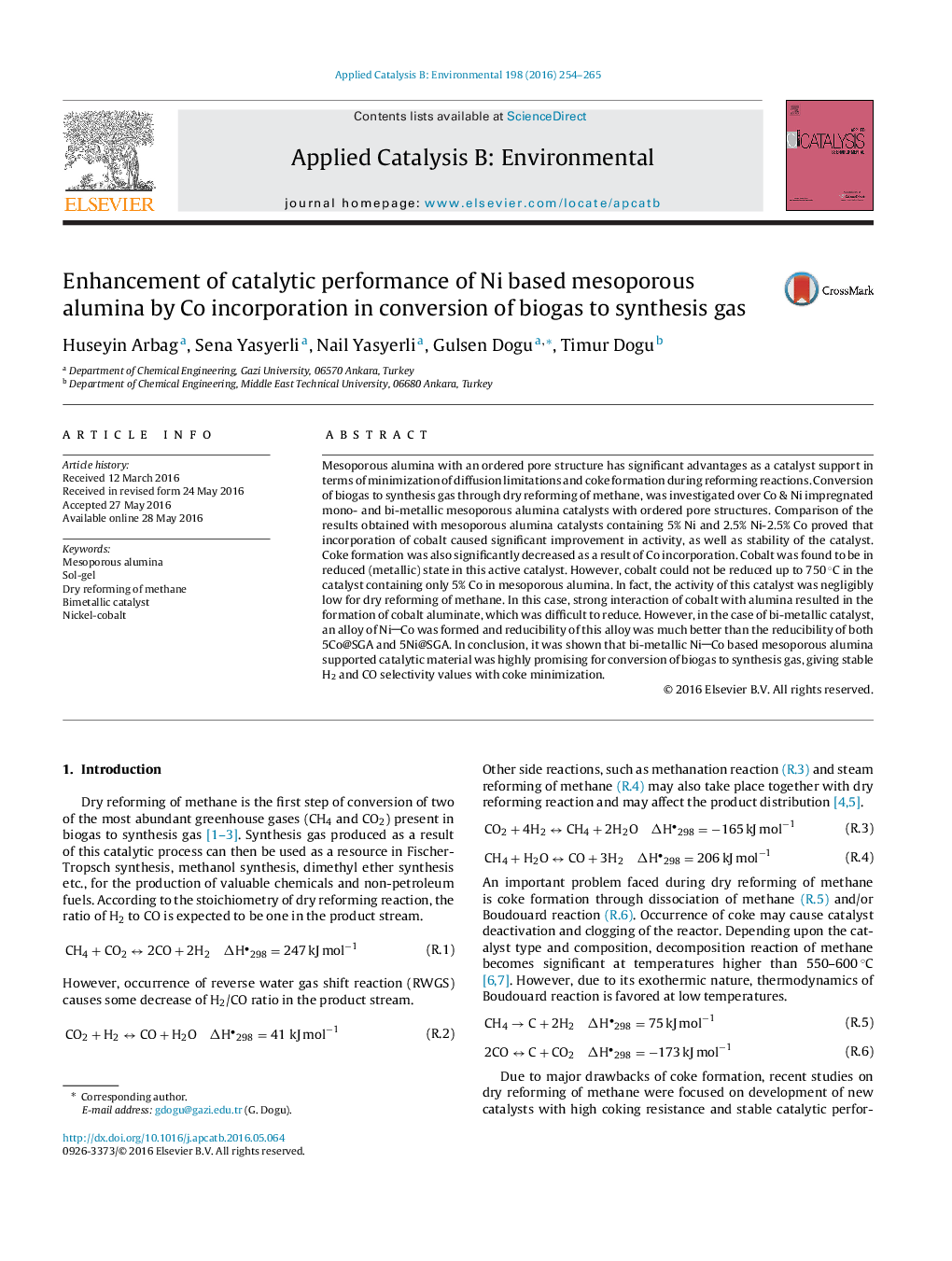| کد مقاله | کد نشریه | سال انتشار | مقاله انگلیسی | نسخه تمام متن |
|---|---|---|---|---|
| 44735 | 46344 | 2016 | 12 صفحه PDF | دانلود رایگان |

• New Co/Ni impregnated mesoporous alumina catalysts for biogas to syngas conversion.
• Co incorporation significantly enhanced activity/stability of Ni-mesoporous alumina.
• Coke formation was minimized by Co incorporation.
• Co was in reduced state in the active bi-metallic Co/Ni-mesporous alumina catalyst.
• Cobalt aluminate formation in mono-metallic Co-alumina catalyst decreased activity.
Mesoporous alumina with an ordered pore structure has significant advantages as a catalyst support in terms of minimization of diffusion limitations and coke formation during reforming reactions. Conversion of biogas to synthesis gas through dry reforming of methane, was investigated over Co & Ni impregnated mono- and bi-metallic mesoporous alumina catalysts with ordered pore structures. Comparison of the results obtained with mesoporous alumina catalysts containing 5% Ni and 2.5% Ni-2.5% Co proved that incorporation of cobalt caused significant improvement in activity, as well as stability of the catalyst. Coke formation was also significantly decreased as a result of Co incorporation. Cobalt was found to be in reduced (metallic) state in this active catalyst. However, cobalt could not be reduced up to 750 °C in the catalyst containing only 5% Co in mesoporous alumina. In fact, the activity of this catalyst was negligibly low for dry reforming of methane. In this case, strong interaction of cobalt with alumina resulted in the formation of cobalt aluminate, which was difficult to reduce. However, in the case of bi-metallic catalyst, an alloy of NiCo was formed and reducibility of this alloy was much better than the reducibility of both 5Co@SGA and 5Ni@SGA. In conclusion, it was shown that bi-metallic NiCo based mesoporous alumina supported catalytic material was highly promising for conversion of biogas to synthesis gas, giving stable H2 and CO selectivity values with coke minimization.
Figure optionsDownload as PowerPoint slide
Journal: Applied Catalysis B: Environmental - Volume 198, 5 December 2016, Pages 254–265